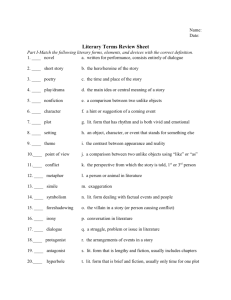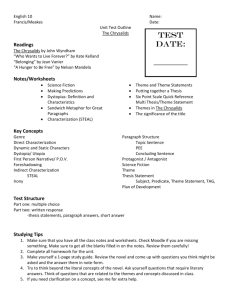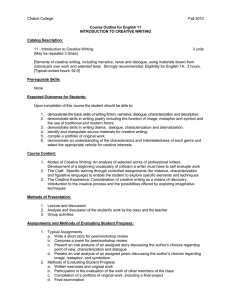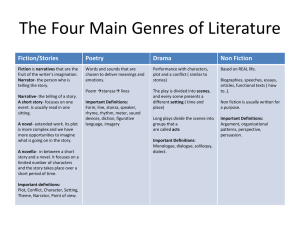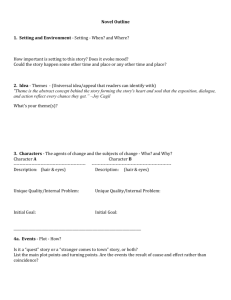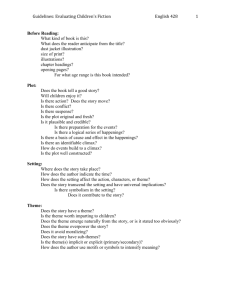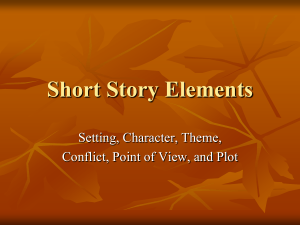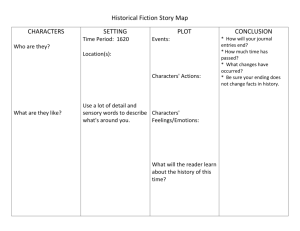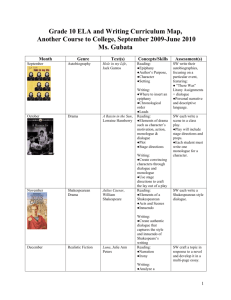BBL 3201 INTRODUCTION TO CRITICAL APPRECIATION
advertisement
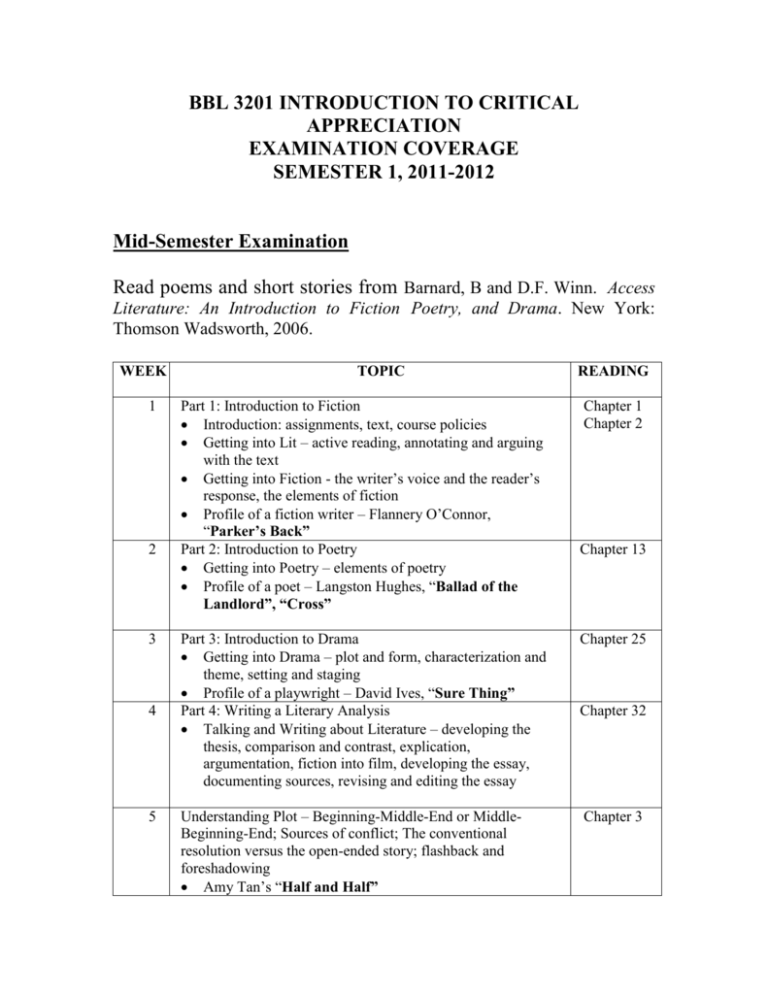
BBL 3201 INTRODUCTION TO CRITICAL APPRECIATION EXAMINATION COVERAGE SEMESTER 1, 2011-2012 Mid-Semester Examination Read poems and short stories from Barnard, B and D.F. Winn. Access Literature: An Introduction to Fiction Poetry, and Drama. New York: Thomson Wadsworth, 2006. WEEK 1 2 3 4 5 TOPIC Part 1: Introduction to Fiction Introduction: assignments, text, course policies Getting into Lit – active reading, annotating and arguing with the text Getting into Fiction - the writer’s voice and the reader’s response, the elements of fiction Profile of a fiction writer – Flannery O’Connor, “Parker’s Back” Part 2: Introduction to Poetry Getting into Poetry – elements of poetry Profile of a poet – Langston Hughes, “Ballad of the Landlord”, “Cross” READING Chapter 1 Chapter 2 Chapter 13 Part 3: Introduction to Drama Getting into Drama – plot and form, characterization and theme, setting and staging Profile of a playwright – David Ives, “Sure Thing” Part 4: Writing a Literary Analysis Talking and Writing about Literature – developing the thesis, comparison and contrast, explication, argumentation, fiction into film, developing the essay, documenting sources, revising and editing the essay Chapter 25 Understanding Plot – Beginning-Middle-End or MiddleBeginning-End; Sources of conflict; The conventional resolution versus the open-ended story; flashback and foreshadowing Amy Tan’s “Half and Half” Chapter 3 Chapter 32 William Faulkner’s “A Rose for Emily” 6 Understanding Characterization – major, minor, round or flat; methods of characterization; dynamic and static characters James Baldwin’s “Sonny’s Blues” Chapter 4 7 Understanding Setting – physical setting; time and setting; setting and theme; social setting Albert Camus’s “The Guest” Chapter 5 Final Semester Examinations 8 Understanding Point of View – third-person voices; firstperson voices; mixed voices Isabel Allende’s “The Judge’s Wife” Chapter 6 9 Understanding Style, Tone of voice, and Irony – style; tone and voice; types of irony; reliability and unreliability Alice Munro’s “How I Met My Husband” Chapter 7 10 Understanding Metaphor, Image and Symbol – figures of speech, Chapter 15 imagery, symbolism Chapter 16 Chitra Banerjee Divakaruni “Two Women Outside a Circus, Pushkar”, “Tiger Mask Ritual” Claribel Alegria, “I am Mirror” Sylvia Plath, “Mirror” 11 Understanding Metaphor, Image and Symbol – figures of speech, Chapter 8 imagery, symbolism Bi Shumin’s “Broken transformers” 12 Understanding Theme – image and theme, characterization, plot and theme; other pathways to theme Louise Erdrich’s “The Red Convertible” Gish Jen’s “In the American Society” Chapter 10 13 Reading and Interpreting Drama – plot and form; characterization and theme; setting and staging Judy Klass’s “The Locker Room” Chapter 30
